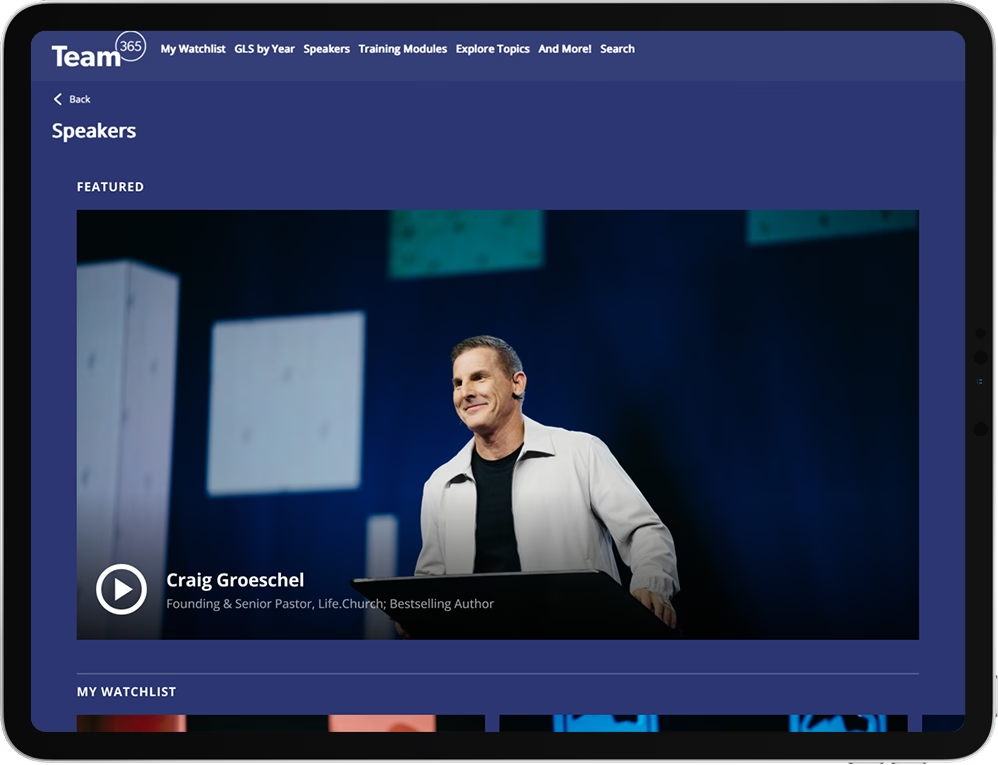When my oldest daughter was 3 years old, we went to the store to buy a toy. In my mind, this event would take about 3-5 minutes. However, 20 minutes later, I watched her go back and forth from among 3 shelves (not even 3 aisles), trying to pick the perfect toy.
She would pick up a toy, put it back, only to come back to that toy and put it back again. This vicious cycle lasted for 20 minutes until I said, “Hey, we have to get ready and go. You have to pick the toy so we can get back home.”
Reluctantly, she looked at me, and went back to the VERY FIRST toy she had picked up. She let me know it took so long because she was looking for the perfect toy!
Afterward, I encouraged her to trust her instincts (as well as I could with a 3-year-old). We could have saved a lot of time. Those 3 words would later come back to haunt me.
While searching for the mirage of perfection, we sacrifice progress toward the true goal.
As a Pastor, I communicate with a congregation, staff, business and community leaders. When preparing a talk (or even writing this blog), I will agonize over a sentence, paragraph or even a word because I want it to be perfect! It should be clear, visionary, tweetable, memorable and any other positive descriptor you can use.
However, there are times, just like my daughter, where I spend hours between 3 shelves (sentences) looking for something, only to go back to where I started.
Perfection Paralyzes Progress and Limits Perspective
While searching for the mirage of perfection, we sacrifice progress toward the true goal.
The drive to make something better is necessary to succeed; however, it’s important to know the difference between “making it better” and “perfect.”
Voltaire said it best, “The Perfect is the enemy of the good.”
Some editing is necessary to improve the product, process or speech. However, investing too much time in search of perfection doesn’t make it better; it just makes it different. Different isn’t always better; it can be worse.
Look to make the maximum impact while investing an appropriate amount of time. When we are in the weeds, we can lose sight of the big picture. When I spend too much time trying to perfect every word, sentence or paragraph, I can lose sight of the original goal and create a new path that I never intended to take.
Time is an expensive commodity. We are always losing it and we can never gain it back.
So how can we run away from perfection? Here are 3 suggestions:
1. Clarify the Outcome
What is the outcome that you are okay with? While we may have dreams of the perfect, clearly define what is acceptable. When you reach that point, get ready to go.
2. Set a Time Frame
How long should you work on this task? Stick to this. Without a defined time frame, we can re-work and re-work. When we work and re-work an idea too many times, we see diminishing returns.
3. Discipline of No
When you finish steps 1 and 2, go to the next! Say no to perfection and yes to progress.
Chasing perfection is like searching for a mirage in the desert. You think you’re almost there only to find out when you arrive it’s gone, or worse, moved away another 10 miles.
The time we spend chasing perfection is a detriment to our progress. Time is an expensive commodity. We are always losing it and we can never gain it back. As leaders, it’s essential that we maximize time well.
Like Craig Groeschel said, “Don’t waste your time. GETMO!”
Related

How to Say No—GLS22 Faculty Spotlight

The Most Important Question Every Leader Needs to Ask

The Enemy of Our Ego—GLSnext Event Series Notes
.jpg)
Leading the Spark: 5 Books on the Intersection of Creativity and Leadership

“Thank You for Seeing Us as People”: Leadership and Hope Inside Graham Correctional Center

The Tech CEO who sold his home to live with the formerly homeless
Leadership That Lasts
Team365 isn’t just a platform. It’s a commitment to grow, lead and live with purpose — every single day. Whether you’re here for content, community or clarity, you’re in the right place. Your leadership matters. Let’s keep going.





